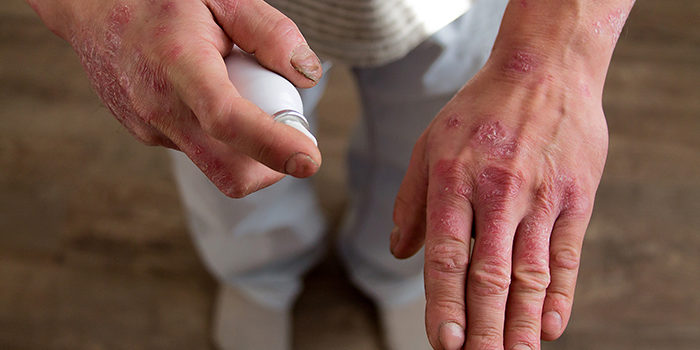

5 Psoriasis Myths Debunked
Uncategorized August 19, 2019 Joana

Psoriasis affects about 7.5 million people just in the United States. There are so many misconceptions about psoriasis, even by those who are affected. For the sake of those living with the condition, we’re here to clear up some of those myths.
1. Psoriasis is contagious
First things first, let’s get this out of the way – No, you cannot catch Psoriasis from someone, not even if you touch, hug or kiss them. It has nothing to do with their hygiene or how clean they are, Psoriasis is not contagious.
2. Psoriasis is a skin disease
Again, wrong. You cannot “catch” it – In fact, Psoriasis is an autoimmune disease. The skin condition results from someone’s defective immune system, which in turn causes their bodies to start producing their skin cells much quicker than normal.
It is, however, genetic. If one parent has it, this will increase your risk. While having two parents who have Psoriasis may increase your risk even more. Although it is genetic, this does not necessarily mean that you will ever get it.
3. There is a cure
While we wish this was true, it is not. Psoriasis is a lifelong condition. However, that does not mean it is not manageable. People who must live with Psoriasis go through times where they have almost non-existent flare-ups. They also go through periods where they will have a particularly bad flare-up.
4. There is no treatment
While it may be a journey of narrowing down treatments that work for each individual, there are plenty of treatment options out there. There are three goals when trying to treat Psoriasis: stop the overactive cells from reproducing, sooth the itching, and to remove all the excess dead skin. Many have also found relief with prescription drugs that work thought the body. The condition usually improves during the summer months due to sun exposure slowing the cell growth.
5. Psoriasis is preventable
While there are certain measures you can take to prevent a flare-up, Psoriasis is a lifelong condition. By managing factors such as you stress level, weight, alcohol intake, smoking, etc. you can reduce the risk of a flare-up. You can also prevent a flare-up with over the counter medications and light therapy!










